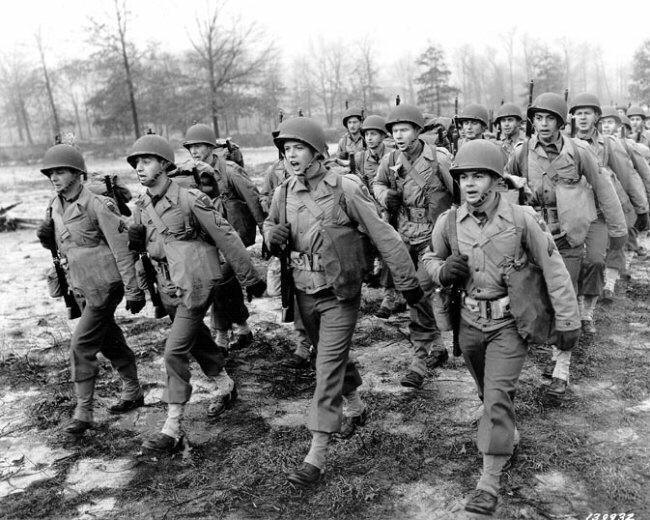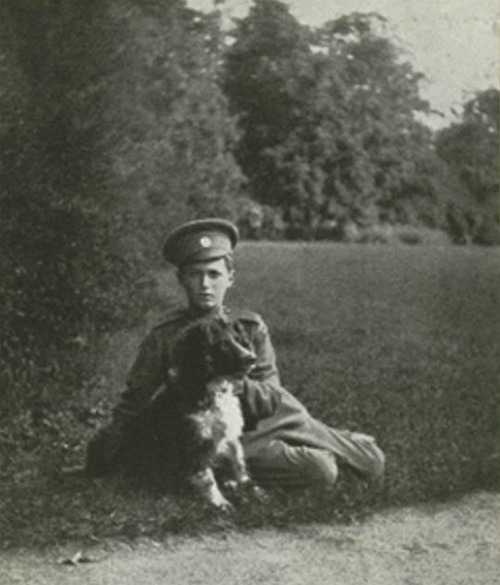It's impossible to prioritize, so here it goes, in no particular order.
1. The Salem Witch Trials

1691, Salem Town, Massachusetts. A band of girls begin exhibiting strange symptoms. In modern times, they would've been shipped off to a psychologist, given a diagnosis, then shipped off to a psychiatrist, given some pills. But here it's the work of the Devil.
Over the next few months, the Afflicted Girls, as they were called, accused hundreds of people of cursing them. Nineteen were hanged and one poor fellow was pressed to death. But if you ask me, the real victims were the girls. They had to live with the guilt for the rest of their lives, which for the most part were spent in the same small town. They never even had an answer for why they did what they did. Mass hysteria? Tourette's? Just peer pressure? Modern historians are still throwing guesses. Sometimes it's just easier to blame it all on the Devil.
Plus, I have a personal connection here. I recently discovered my great great great great great great great great great great great great aunt, Susannah Martin, was hanged for witchcraft. That's doesn't stop me from pitying the Afflicted more than the Accused.
2. The Titanic

Who doesn't love this? There's so much contrast. The wealth and glamour of the upper deck passengers, the huddled masses down in steerage. The ridiculous amount of money spent outfitting the ship with things like cigarette holders. Meanwhile, there are nowhere near enough lifeboats for the passengers. Why has the Titanic gone down in history? Name one other famous shipwreck. Heck, name one famous ship.
The Titanic didn't bring America into war like the Lusitania or the U.S. Maine. It wasn't a vessel of discovery like the Santa Maria or the Beagle. It didn't do anything but chug halfway across the Atlantic and die.
There's something haunting about tragedy. The shipwreck could've easily been prevented, and that, combined with the contrast of wealth and poverty, has given inspiration to countless books, plays, and movies.
Sometimes, you don't have to impact the world to be remembered. You just have to leave a legacy.
3. The Romanov Assassinations
Their family may have owned a sixth of the globe, but the Romanov sisters never had a room of their own. Olga roomed with Tatiana and Anastasia with Maria. They made their own beds every morning. Still, they were raised in a bubble. The Romanovs lived a life of luxury while Russia teetered on the brink of revolution. Eventually all seven of them were assassinated, along with some of their servants. Their bodies weren't found until many decades later, and when they were, not all of them were together. The Romanov's killers buried Alexei and one of his sisters separately to help hide their crime. Scientists disagree over whether the missing girl was Anastasia or Maria. In 2007, the missing bodies were recovered, though we still don't know which sister was separated. One thing's for certain: the only member of the Romanov family who survived was Joy, Alexei's spaniel.
4. The Industrial Era

Battlefields and assassination sites get preserved for future generations of third graders to visit on field trips. But the untragic side of history, the mills and factories, they just get abandoned and crumble. The Industrial Revolution was really the tipping point of human history. Life was no longer measured by the rising and setting of the sun. Clocks made everything precise. Instead of waking up "at dawn", you had to get to work by 5:00 A.M. You could travel by rail instead of wagon, which led to the invention of time zones.
And again, we see the contrast beneath the rich and the poor. The silk dresses and satin underwear of the rich was made by shoeless children working for two dollars a week.
Plus, it's also when we got the Newsies.

5. World War I

They called it The War to End All Wars. But today, we mostly look at it as a precursor to World War II. This is the first modern war. We started off on horseback and by the end we were dropping bombs from airplanes. It changed the way we think of fighting itself but no one ever talks about it. The National Mall doesn't even have a memorial for the 116,516 who gave their lives.
1. The Salem Witch Trials

1691, Salem Town, Massachusetts. A band of girls begin exhibiting strange symptoms. In modern times, they would've been shipped off to a psychologist, given a diagnosis, then shipped off to a psychiatrist, given some pills. But here it's the work of the Devil.
Over the next few months, the Afflicted Girls, as they were called, accused hundreds of people of cursing them. Nineteen were hanged and one poor fellow was pressed to death. But if you ask me, the real victims were the girls. They had to live with the guilt for the rest of their lives, which for the most part were spent in the same small town. They never even had an answer for why they did what they did. Mass hysteria? Tourette's? Just peer pressure? Modern historians are still throwing guesses. Sometimes it's just easier to blame it all on the Devil.
Plus, I have a personal connection here. I recently discovered my great great great great great great great great great great great great aunt, Susannah Martin, was hanged for witchcraft. That's doesn't stop me from pitying the Afflicted more than the Accused.
2. The Titanic

Who doesn't love this? There's so much contrast. The wealth and glamour of the upper deck passengers, the huddled masses down in steerage. The ridiculous amount of money spent outfitting the ship with things like cigarette holders. Meanwhile, there are nowhere near enough lifeboats for the passengers. Why has the Titanic gone down in history? Name one other famous shipwreck. Heck, name one famous ship.
The Titanic didn't bring America into war like the Lusitania or the U.S. Maine. It wasn't a vessel of discovery like the Santa Maria or the Beagle. It didn't do anything but chug halfway across the Atlantic and die.
There's something haunting about tragedy. The shipwreck could've easily been prevented, and that, combined with the contrast of wealth and poverty, has given inspiration to countless books, plays, and movies.
Sometimes, you don't have to impact the world to be remembered. You just have to leave a legacy.
3. The Romanov Assassinations
 |
| Moving clockwise: Tatiana, Olga, Tsar Nicholas II, Anastasia, Alexei, Tsarina Alexandra, and Maria |
 |

Battlefields and assassination sites get preserved for future generations of third graders to visit on field trips. But the untragic side of history, the mills and factories, they just get abandoned and crumble. The Industrial Revolution was really the tipping point of human history. Life was no longer measured by the rising and setting of the sun. Clocks made everything precise. Instead of waking up "at dawn", you had to get to work by 5:00 A.M. You could travel by rail instead of wagon, which led to the invention of time zones.
And again, we see the contrast beneath the rich and the poor. The silk dresses and satin underwear of the rich was made by shoeless children working for two dollars a week.
Plus, it's also when we got the Newsies.

5. World War I

They called it The War to End All Wars. But today, we mostly look at it as a precursor to World War II. This is the first modern war. We started off on horseback and by the end we were dropping bombs from airplanes. It changed the way we think of fighting itself but no one ever talks about it. The National Mall doesn't even have a memorial for the 116,516 who gave their lives.
No comments:
Post a Comment